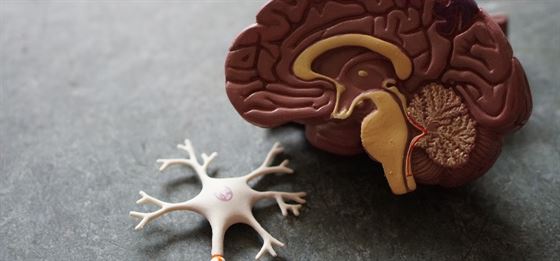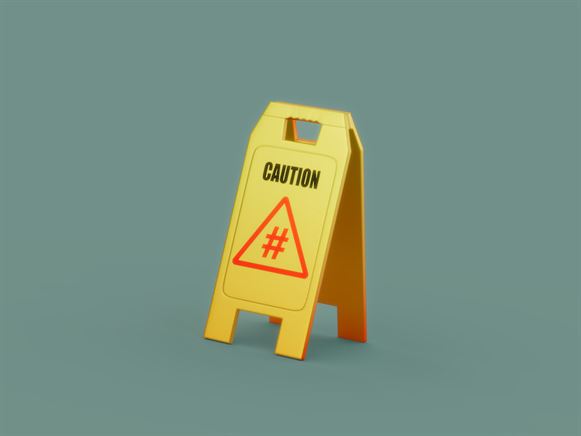
Understanding Addiction
.jpg)
Addiction can be a devastating experience for individuals and their families. The cycle of addiction can seem never-ending, but there is hope for those looking to take back control of their lives. Here’s a guide to understanding addiction, how to break the cycle and tips for maintaining recovery in the long term.
What Does Research Say About Addiction?
Addiction is characterized by compulsive behavior that continues despite serious consequences or negative effects on one's life. It can be physical or psychological and can involve substances such as alcohol or drugs, as well as activities like gambling or sex.
Research shows addiction is a complex disorder that affects behavior, emotion and cognition. While it’s often thought of as a mental health condition, addiction is a multi-faceted disorder which involves changes in brain chemistry, genetics and environmental triggers. Addiction can be caused by a variety of factors, including genetic predisposition, environmental influences and personal history. The following statistics showcase how deep-rooted this problem is are as follows:
- Drug use leads to 11.8 million deaths each year globally.
- Excessive tobacco, alcohol and drug consumption can drastically decrease one's life span. In fact, 11.4 million die prematurely due to substance abuse.
- Shockingly, over half of the individuals who succumb to alcohol or drug overdoses are below 50 years of age.
The Biology of Addiction
A commonly held misconception is that addiction can be tackled through sheer willpower and is simply a matter of moral choice. However, the reality could not be farther from this notion. Addiction genuinely affects the brain and it requires diligent effort to restore its natural balance. The longer an individual has used drugs or alcohol, the more significant disruption is caused in their brains. Studies have revealed addiction can take control of and even obliterate, certain parts of our brains designed for survival. This power gives it an influence over us like no other force.
The Journey to Recovery
Breaking the cycle of addiction can be difficult but it is possible. Here are some steps to help you start your journey to recovery:
1. Identify the Problem
The first step in breaking the cycle of addiction is recognizing you have a problem. This can be difficult, as many individuals feel ashamed or guilty about their addiction. However, it is important to acknowledge your struggles and take ownership of the problem.
2. Decide You Want to Quit
Often, you may feel trapped in a cycle of addiction without knowing how to escape. Deciding to quit your addiction is key. This may involve setting goals and creating an action plan to stay motivated.
3. Get Professional Help
Addiction is a complex disorder which can be difficult to tackle on your own. It is important to seek professional help from a qualified healthcare provider. This could include therapy sessions with a therapist who specializes in addiction treatment or attending an outpatient program at a local treatment center. Evidence-based treatments, such as Cognitive Behavioural Therapy (CBT), can help you identify and address the underlying causes of your addiction.
4. Develop Coping Strategies
These strategies can include activities such as exercising, journaling or talking to a friend. Additionally, developing mindfulness and relaxation techniques can help to reduce stress and cravings.
5. Build a Support Network
This could include family members, peers in recovery or a therapist. It's also important to find support from family members and friends who understand what you are going through and can provide emotional support throughout your journey towards recovery.
6. Take Ownership
Accepting your past actions and taking ownership of your decisions is an important component of breaking the cycle of addiction. This involves reflecting on how you can make better choices in the future and understanding your actions have consequences. Additionally, it is important to forgive yourself for past mistakes and focus on the future rather than dwelling on the past.
7. Maintaining Recovery
Recovery from an addiction is not easy—it requires hard work, dedication, commitment and resilience. But if you stick with it you will be able to make lasting changes that will improve your overall quality of life. Some tips for maintaining recovery include joining a support group such as Alcoholics Anonymous (AA) or Narcotics Anonymous (NA), developing healthy coping mechanisms such as yoga or meditation, avoiding triggers like environments associated with substance use, setting realistic goals which are achievable over time and seeking professional help when needed.
Breaking the cycle of addiction is possible with determination and effort—and most importantly—by taking it one day at a time. If you or someone you love is struggling with addiction please know there are resources available to help make this process easier. With patience and perseverance, it’s possible to break free from the chains of addiction and lead a healthier life full of joy and purpose.
Articles
Build your awareness and get inspired with our researched articles on how you can strengthen your well-being
Popular Topics
An OTP has been sent to the email address
provided.
Please check your Inbox and Spam folders.

What Would You Like to Speak with a Specialist About?
Mental Fitness Journey starts Now!
Chearful Connects you with Top-tier Qualified Wellness specialists for the Price of a cup of Coffee!

Next Steps
- A Client Team member will reach out to you to schedule a session with the most suitable specialist.
- You will receive an email with a 10% Discount Code* for your 1st session.
- We invite you to Explore the Platform & Sign Up today! *Upto a maximum of $10 discount on a session purchased




 3201 Read
3201 Read



.jpg)








.png)

.jpg)

.jpg)




.jpg)































.jpg)

.jpg)



































